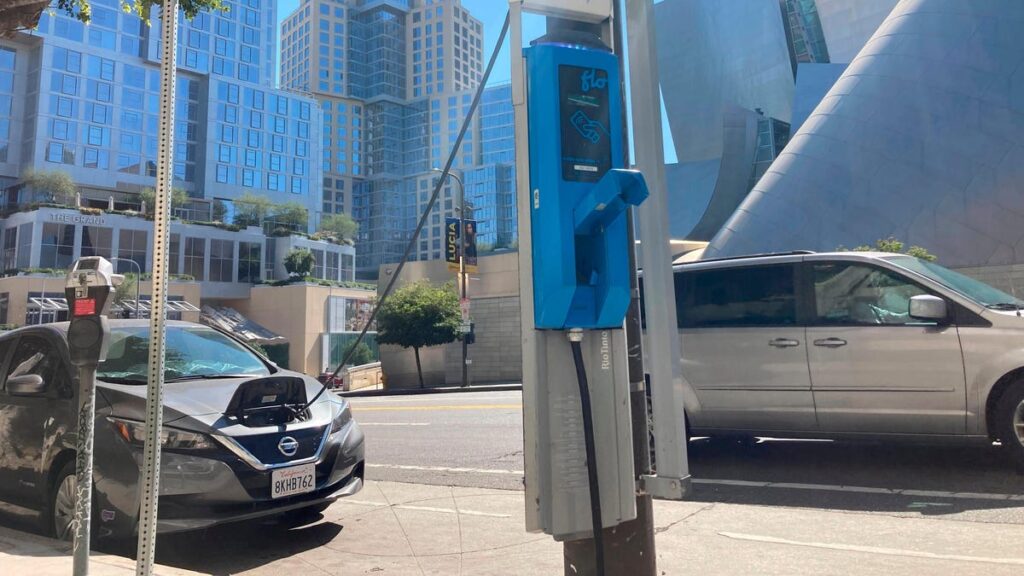California Wants to Make EV Charging Stations Suck Less

An EV charger in downtown Los AngelesImage: Eugene Garcia (AP)
To be blunt, public EV charging sucks. Chargers can be unreliable and nonoperative when you need them, a problem that’s hampering EV adoption. We need more chargers, specifically DC fast chargers. California, at the forefront of EV adoption, wants to make EV charging more reliable as Car & Driver reports. State officials want to make charging more reliable and hold EV charging companies responsible for unreliability.
Currently, the way EV charging companies check to see if chargers are functioning is pretty light. Instead of using metrics to gather data from the charger to see if it’s working, most companies just ping the charger. If it pings back, that means it working. But that doesn’t actually mean anything as a charger can ping but have everything from its card reader to the charging connector malfunctioning. And as Car & Driver pointed out, angry customer complaints can fall on deaf ears.
In many cases, user feedback—from angry tweets to comments and ratings on apps such as PlugShare or Chargeway—receives a response only 24 to 72 hours later, if at all, generally during standard weekday business hours.
It’s safe to say that these companies face little to any accountability for their chargers not working. California is looking to change that.
A bill has been proposed by state Assemblyman Phil Ting. Among other EV initiatives, the bill would require the Public Utilities Commission as well as the California Energy Commission to “develop uptime recordkeeping and reporting standards for electric vehicle chargers and charging stations by January 1, 2024.” Essentially, the bill says that it can no longer trust these companies to reliably report on their own chargers’ reliability. Beginning January 1, 2025, the bill would have the Energy Commission “assess the uptime of charging station infrastructure” and make sure charging access is equitable across all communities, regardless of income level.
G/O Media may get a commission

Grow those luscious locks back
This proprietary, prescription-grade topical Finasteride is proven to regrow hair in just a few months.
This all sounds well and good, right? EV chargers need to be reliable for people to use them. Tesla can’t have the only reliable network of chargers. Still, the bill has a big caveat. The uptime recordkeeping and reporting standards would only apply to chargers that have received incentives and grants from state agencies. This would also only apply for a period of six years and to chargers installed after the bill’s January 2024 effective date. So what of existing chargers? The Energy Commission would hold public workshops to identify the best ways to increase charger reliability.
While it may seem pointless for this to only assess chargers that haven’t been built yet, if this will end up making chargers more reliable in the long run it would be worth it.



